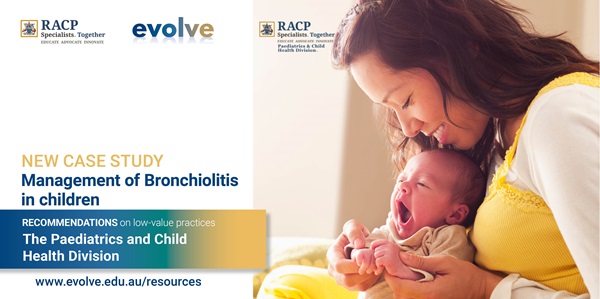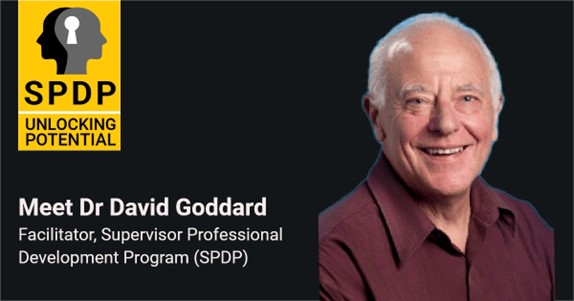The President's Message – 25 November 2022
The Royal Australasian College of Physicians acknowledges the Traditional Owners of the land. We would also like to pay our respects to Elders past, present and emerging.
I would like to acknowledge the Gadigal people of the Eora Nation as the traditional owners and custodians of the land I am speaking on today. I extend my respect to all Aboriginal, Torres Strait Islander, and Māori people. Together, we restate our shared commitment to advancing Aboriginal, Torres Strait Islander and Māori health and education as core business of the RACP.
Today, I want to talk with you about the importance of the first 2,000 days of life – and the degree to which they affect the following 30,000 days. Most of you know that I am a paediatrician, and so am deeply aware of the importance of the first 2,000 days for a child’s health and wellbeing.
Within our College, our disciplines of adult and paediatric medicine, Public Health and other faculties tend to practice in siloes. Yet there is direct relevance, and impact, of the experiences during early childhood on health across the lifespan.
Research shows that adult morbidity is predicated on both pre and postnatal experiences. We’ve long known the impact of a mother’s physical health on a developing child and adult. How a lack of folate can have catastrophic effects on spinal cord development. How the mild symptoms of maternal rubella lead to impaired vision, hearing and intellectual development.
But what about psychosocial factors?
If a mother suffers more than five stressful life events during pregnancy, her child will likely manifest abnormal development, later in their childhood. That’s one of the findings of the 30 year long Raine Study in Western Australia. In other words, the mental health, the psychosocial health of the mother during pregnancy, and early childhood, has an impact on the psychosocial health and development of that baby, and ultimately the child and adult. The developmental origins of health and disease (DOHAD), means that lifelong morbidity is established in the early years.
Many of you will recall that the late British epidemiologist, Dr David Barker, established a link between low birth weight and adult coronary artery disease. We’re now seeing evidence of the neuroanatomical manifestations of early childhood neglect. PET scans of children in Romanian orphanages who suffered extreme neglect show patterns of darkness where brain architecture hasn’t developed compared with a normal PET scan of a healthy, red, lit up brain.
We know from a UK study that a developmental assessment at just 22 months is an accurate predictor of that child's educational outcomes at 26 years. The data shows that even life expectancy is affected by childhood psychosocial factors.
A pivotal study in the US by Dr Vincent Felitti related the health of more than 17,000 adults to those who had adverse childhood experiences. It assigned them what is known as an ACE score, out of ten. Childhood experiences such as domestic violence, substance abuse, mental illness, parental separation or divorce, or incarceration attract a score of five. A child with an ACE score of six or more is predicted to die up to 20 years earlier than one with a score of zero.
Many adults don't think that domestic violence, or the circumstances a baby grows up in, will have an impact on that baby. They also don’t understand the enormous cognitive and emotional development that happens before the onset of-speech.
We can be encouraged that protective factors can buffer the impact of stress and support healthy development. This includes things like parenting programs, substance abuse treatment, high quality childcare, and income support for low-income families. However, the biggest gains are when intervention occurs during early childhood. Investing in early childhood produces a return on investment of $13 for every dollar you put in. The evidence is clear, early intervention is a smart investment .
We can be proud that our College has policies and has been advocating about the importance of the first 2,000 days. You can read our Early Childhood Position Statement, Inequities in Child Health and the Kids COVID Catch Up campaign. The RACP also recognises the impact of socioeconomic determinants of health; have a look at #MakeItTheNorm.
A strength of our College is our diversity – that is that we include members whose practice is with premature babies, the youngest of our patients, and members who practice with the elderly. Collectively, we can advocate to make a difference to the health of our communities across the lifespan, by advocating for early intervention in the first 2,000 days.
Early childhood is relevant for all of us, no matter the age of our patients. Imagine if we routinely took account of the early childhood history and experiences, no matter what the age of our patient.
I want to acknowledge Associate Professor Elisabeth Murphy, a member of our College and Senior Child Health Advisor Health, New South Wales for her support with this video.
Dr Jacqueline Small
RACP President
To contact Jacqueline, please email president@racp.edu.au
The RACP appreciates the value and experience Indigenous and Māori doctors can provide to the health sector and communities in treating Indigenous and Māori health issues.
The RACP Indigenous Health Scholarship Program provides funded pathways through physician training. Applications for 2023 Indigenous Health Scholarships close Wednesday, 30 November 2022.
The RACP President's Indigenous Congress Prize is open to medical students, junior medical officers and RACP trainees who identify as Aboriginal, Torres Strait Islander or Māori. The selected applicant will receive support to attend RACP Congress 2023 to gain educational and networking opportunities, as well as exposure to career pathways within the College.
Please encourage anyone you know who is eligible to apply before the deadline on Wednesday, 30 November 2022.

We listened to your feedback about completing your My Work Profile, so this year we’ve simplified the questionnaire. It should take less than five minutes to complete.
In recognition of your time, if you complete your profile between November and February, you will go into a draw to win one of three $300 Prezzee gift cards. One winner chosen at random at the end of each month.
Complete your profile Find out more
Help shape the future of our training programs
Consultation is now open for the following draft curricula. Visit the specialty pages below to review the draft curriculum and provide your feedback.
Watch this short video to find out more about the curriculum development process and how you can contribute to the consultation. If you have any questions, please email curriculum@racp.edu.au or contact Member Services.

To support the implementation of Evolve recommendations in clinical practice, we have launched a series of case studies. The case studies explore a clinical scenario based on one of the Evolve recommendations on low-value care. Dr Joanna Lawrence and the Paediatrics & Child Health Division have led the development of a new case study for management of bronchiolitis in children.
Access case studies
Develop new Evolve case studies
Evolve is seeking enthusiastic Fellows and trainees to partner with us in developing case studies for more specialties. The aim of the case studies is to support Fellows and trainees to build an understanding of low-value care within their specialty and act as a tool for clinical educators and supervisors. Email evolve@racp.edu.au to get involved.

Why do you facilitate SPDP workshops?
Firstly, I believe in what the workshops aim to achieve. A supervisor’s special role is to help their trainee to think like an expert. This is done by encouraging trainees to make decisions that have real consequences, being on-hand to give feedback and on their trainee’s clinical skills and report writing, as well as numerous other skills. The workshops emphasise these things. Secondly, I am driven by my experience of summative assessment. The SPDP workshops help a supervisor to more clearly define their own responsibilities and those of their trainee.
What is the most enjoyable part of your role as an SPDP facilitator?
During each workshop, I love hearing the stories of workshop participants. For example, when (often with the help of a colleague) they have salvaged a difficult situation, when they’re struggling, or when they’ve striven to bring greater support to learning in their hospital setting, or how they’ve coped during the coronavirus-related restrictions. Such stories inevitably provoke responses from other participants relevant to the theme of the workshop. So often, at the end of a workshop, I feel exhilarated by the contributions of the people I’ve just engaged with and have just a smidgen more insight into the workings of our endlessly varied profession. Even after facilitating more than 80 workshops, I’m always a little nervous at the start. But when the discussion gets going, pleasure dawns.
Why should your colleagues consider becoming an SPDP Facilitator?
What I say here responds to the question, “What’s in it for me?”
Facilitation gives a sort of ‘drone’s-eye’ view of what’s happening in supervision in the College. It adds to your own supervisory ability by helping you to accrete good tips from other supervisors. This effect is more powerful for a facilitator than a workshop participant because a facilitator listens carefully to what participants say so as to link related ideas from different workshop participants.
Facilitation helps one appreciate how other Fellows handle difficult situations with trainees. It’s helpful to see how experienced colleagues think about problems I have faced myself.
As a facilitator, you will be inspired sometimes by what other supervisors (or supervisor groups) have done to build the learning culture in their hospital. This fosters admiration of colleagues – even remote colleagues – and helps one feel part of a community of supervisors.
At times, facilitation helps you become more self-aware through others’ reactions to you. You gain confidence by better understanding of how others see you. Facilitation forces thought about the workshop slides and readings. You read them more than once and, as you do, you find different situations in supervision where they apply or, perhaps, where they don’t quite fit.
But you don’t get rich from facilitation. It’s a voluntary role. It takes time to facilitate, so you’ll likely be a little poorer in wealth but richer in mind and achievements.
Why do you think your colleagues should complete the SPDP workshops?
One vital aspect of supervision is observing your trainee in enough variety of situations to make fair decisions about your trainee’s capability. Where a supervisor lacks this information, the ‘default option’ becomes to wave the trainee through because, without enough information, a supervisor cannot defend an adverse decision. Attending the SPDP workshops to learn about formative assessment and its importance and the College’s trainee support pathway can steel a supervisor’s resolve to put serious effort into comprehending what their trainee can do.
In the workshops, some Fellows new to supervisory roles have expressed lack of confidence in giving ‘negative’ feedback because they fear that trainees will accuse them of harassment. The workshops show participants the importance of setting the expectation that feedback will be given and received, how experienced supervisors handle the giving of negative feedback, and what is and isn’t bullying or harassment.
Very often, experienced supervisors will describe mistakes they’ve made in supervision. It’s helpful to realise that other physicians face the same supervising problems that you do and that we all mess up from time to time.
About the SPDP
Register now for a virtual, face-to-face, or online SPDP workshop. For more information, visit our website or contact supervisor@racp.edu.au.
The RACP Membership Diversity Advisory Group (MDAG) was established in 2021 to develop an RACP Member Diversity and Inclusion Plan. To help make this a meaningful and relevant exercise, the MDAG has developed a short survey by which it seeks to better understand membership identities.
Member experience will assist us to progress the work needed for a more inclusive culture, where everyone feels valued and respected. The survey should take less than 10 minutes to complete and is open until early January 2023.
Take survey
 Clinical complications suffered by patients during hospital stays are assumed to be preventable and to provide some metric of quality of care.
Clinical complications suffered by patients during hospital stays are assumed to be preventable and to provide some metric of quality of care.
To assist in their understanding and mitigation the Australian Commission on Safety and Quality in Healthcare established a national program to track hospital-acquired complications (HACs) in a formalised way.
Listen to podcast
Expressions of interest
More opportunities
Did you know that your membership gives you access to an extensive collection of online learning resources? These have been designed to support you with your professional learning needs and interests. Resources cover auditing, peer reviewing, cultural safety awareness, digital health, advocacy, quality and safety, and much more.
Search now and start learning
Stay informed
Read other RACP eBulletins:
Join the conversation in the ROC